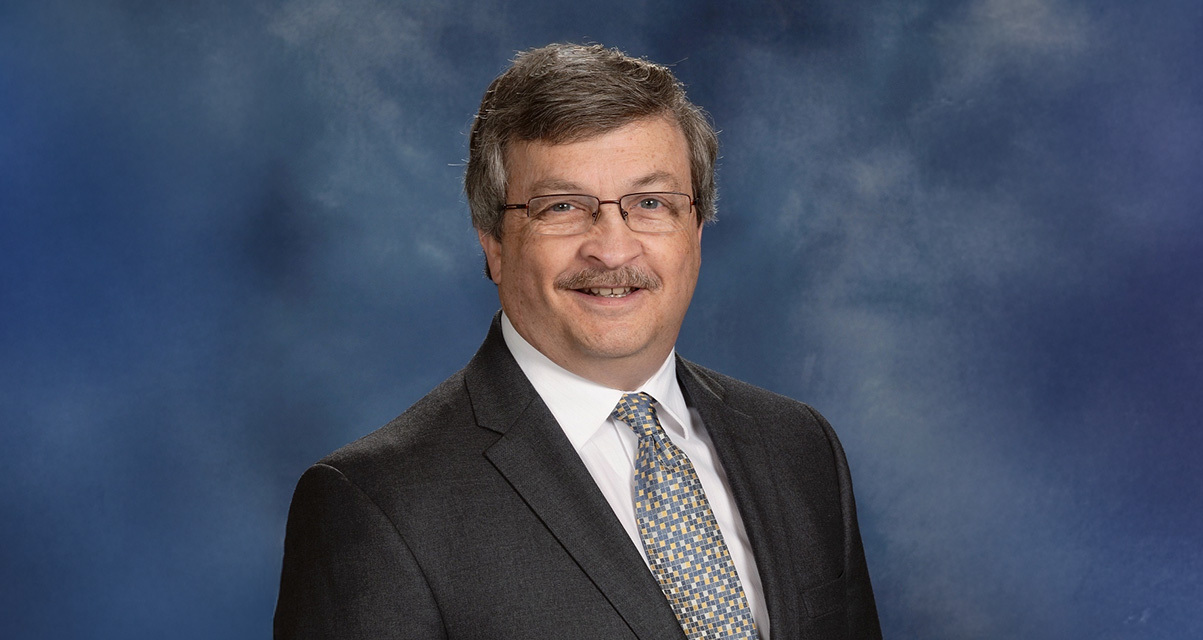Answering the Call: George Barclay’s (’79B) Journey in Ministry and Community Leadership
George Barclay ’79B studied biblical studies and psychology at Barrington College before it merged with Gordon College in 1985. He’s served in ministry his entire career in the northeast and spent the last 30 years at Norwood Baptist Church in Warwick, RI. We sat down with him to ask about his career and trends in the American church.
Why did you decide to enter ministry? Why study psychology alongside biblical studies?
I felt called to ministry when I was 16—my nickname in high school was “Rev”. Some pastors are suspicious of psychology, but that education has helped me in my role just as much as biblical studies. Pastors end up doing a lot of counseling, so learning how to ask the right questions and understanding the cause-and-effect sin and life can have on our behavior and spirituality, connecting the body and soul, was extremely important.
What sets Norwood Baptist apart as a church?
What makes us unique is our adult discipleship; the majority of our adults are in some form of it. After high school is done, 75 percent of our churchgoers are involved in some type of spiritual growth. When I started at Norwood, I had to ask the question, “What do I want to do as a pastor?” God’s answer was pastor, mature and grow my church, and discipleship is the best way to do that. A lot of mainline churches have lost their way in New England and have compromised on discipleship. We’re unique among the churches in Rhode Island because of this focus.
The other thing that sets us apart is being a neighborhood church. We do a lot of things in the community. Our city is pretty low-to-middle income, with an elementary school I can walk to. Kids will sometimes show up [at the school] without a lunch for the day, a backpack for their books or a coat for winter. We’ve partnered with the school over the years and the neighborhood association to provide those things, so they know they can count on us if they need us to help. It’s not an evangelism technique; we’re playing the long game by caring for people genuinely. If people know you care by showing them God’s love, hopefully they’ll listen to us talk about Jesus.
What trends have you noticed in church work over your years as a pastor?
COVID was brutal for a lot of churches, but in a way, it helped my church. COVID made us think about new ways to bring the Gospel to people. COVID helped us see that there was a lot of cultural Christianity in our church—people were coming to church services and events, but in their hearts they weren’t all in for the Gospel. We’ve found that with the younger generations especially, people aren’t coming to church for the music or the fanfare—they want something that’s real. They need to see authentic worship; they’re not usually coming for social reasons or for friends. They want to be involved in something that matters. So, our church has been focusing on discipleship and community engagement so our congregation knows they’re a part of the greatest thing that could ever be.
What misconceptions do you think people have about pastors and other church professions?
What’s happening in the American church now is the stuff seminary couldn’t teach you when I attended. Church pastors were high on the list of trusted professionals in the community, but not anymore. There used to be four major things a church wanted out of the role of a pastor: a good preacher, visitation, counseling and rites and rituals. Today, there’s over 100 expectations. It’s all changed. A pastor is also a family counselor, a businessman, a musician…there’s different needs going on. Seminaries can’t predict the future.
But here’s the good news. Right now we have a whole lot of younger Christians and pastors on fire for the Lord. They’re doing things differently than my generation, and that’s good. Something is happening in the youth ministries in New England; I can sense it. So, as a pastor I’m trying to be prepared to be a part of it. I’m not sure exactly what’s coming, but I have a lot of hope.
What advice would you give to students considering going into ministry?
Pray, pray, pray! Ask God, “Are you calling me into ministry?” and ask the people around you if they think you’re gifted for it. It’s not a job, it’s a calling. Every story is different, but if it’s how God wants you to live, then he will prepare you for it. After that, make sure you are connected with other people in ministry; never do it alone. Have a network of other pastors to talk to and always have a group of people to rely on in your church. Pray together, help each other. But be prepared that the world of ministry is going to be different than the way it has been. It won’t be easy, it will be a challenge, but the Lord will be with you, so you will be okay.
 The Bell
The Bell